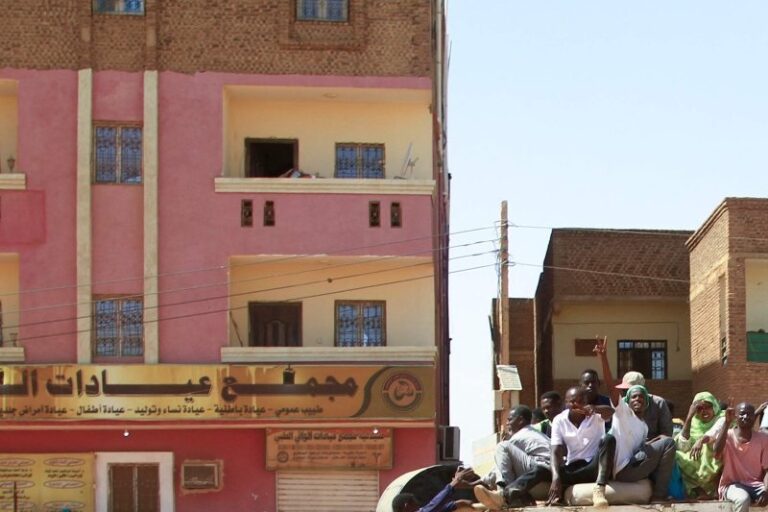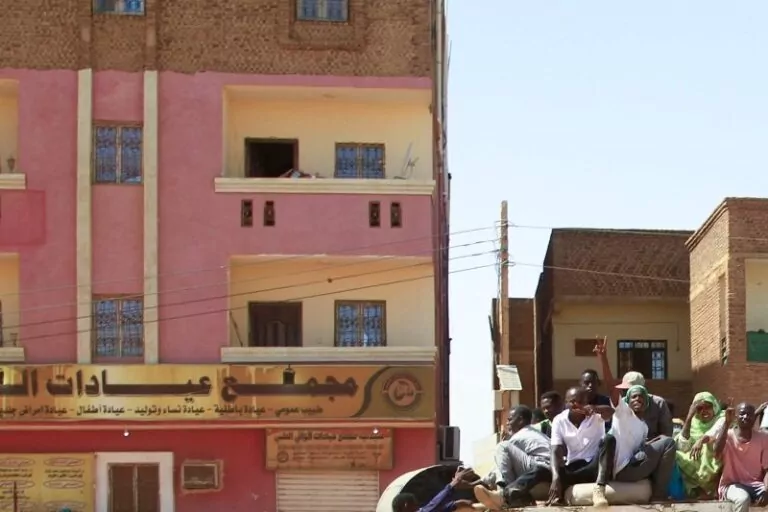

as conflicts continue, sudanese refugees move into ethiopia
Last updated on May 9th, 2023 at 08:17 am
Hundreds of Sudanese refugees crossed Ethiopia’s border on their way to safety after escaping an ongoing violent conflict in their home country. On April 15, fighting broke out in Sudan between the army and paramilitary forces. As of right now, at least 700 people have been murdered, with the majority of those being civilians. One of the women who is presently seeking shelter in the border area of Metema shared her perspective, stating that “our safety and life come first, and we can’t be thinking about the things that we have left behind.”
Gunfights and airstrikes once again rocked Khartoum, the capital of Sudan, which has been the scene of fighting for four weeks despite the most recent ceasefire efforts supported by Saudi Arabia and the United States. This comes as the scenario comes about as gun battles and air strikes on Sunday again flared up in Khartoum. Since the beginning of the combat between the army and paramilitary forces, a number of cease-fire agreements have been declared, but all of them have been broken almost immediately.
Since then, intense fighting has resulted in the deaths of at least 700 individuals, the majority of whom were civilians; it has also wounded thousands of people and prompted a large-scale evacuation of refugees from Sudan as well as other countries. In the besieged city of Khartoum, fighter jets have been bombing enemy positions while scared people have remained locked indoors due to severe shortages of water, food, medicines, and other necessities.
On the other side of the Red Sea, in the city of Jeddah in Saudi Arabia, negotiations were taking place with the goal of achieving a ceasefire that would support the urgent efforts being made to provide humanitarian aid to the population that was under siege. The generals heading the opposing sides in the conflict have placed blame for the violence on each other, but they have not disclosed much information regarding the talks that have been taking place in Jeddah since Saturday.
While Army spokesman Brigadier General Nabil Abdalla stated that the negotiations were about how a truce “can be correctly implemented to serve the humanitarian side,” Mohamed Hamdan Daglo, who heads the Rapid Support Forces (RSF), just stated on Twitter that he welcomed the technical conversations. Nabil Abdalla said the meetings were about how a truce “can be correctly implemented to serve the humanitarian side.”
Both Riyadh and Washington have expressed their support for the “pre-negotiation talks” and have urged both sides to “get actively involved.” As the fighting has continued unabated, there has been little reason to believe that these and other international efforts to silence the guns will be successful. This raises the possibility that the conflict may escalate into a full-scale civil war and a catastrophic humanitarian tragedy.
According to Sudan researcher Aly Verjee, who works at the University of Gothenburg in Sweden, the end of hostilities is the “lowest common denominator” among the goals of the international community. “However, it does not appear that there is any sort of consensus on what to do beyond that primary goal.”
Verjee stated that for any fresh declaration of a cease-fire, there must be a “credible process to monitor and verify cease-fire non-compliance,” as well as mutually agreed upon “consequences in the likely event of cease-fire breaches.” In order for the cease-fire to have any real significance, the process must be credible.
Both sides have been making an effort to gain a military advantage on the ground in the nation’s capital as well as in other hotspots of conflict throughout the nation, including the perennially problematic Darfur region. According to Andreas Krieg of King’s College London, “the battle for Khartoum is quickly developing into a war of attrition where both sides have similar capabilities and capacities.”
General Abdel Fattah al-Burhan is in charge of the army, which has air power and probably more soldiers than that—roughly 100,000 men—under his command. But the RSF, which sprang from the notorious Janjaweed militia that was accused of war crimes in the Darfur region, uses guerilla techniques that, according to Krieg, can make them “more agile.”
Despite the fact that they were involved in the staging of the most recent coup in Sudan in 2021 together, both the army and the RSF have made efforts to position themselves as defenders of democratic principles. After months of widespread demonstrations in support of democratic reform, Burhan and Daglo, Burhan’s former deputy, staged a palace coup in 2019 and succeeded in removing Sudan’s longstanding ruler, Omar al-Bashir, from power.
After Omar al-Bashir’s ouster, Sudan was meant to be led toward democracy by a military-civilian administration; instead, in 2021, the generals staged another coup in order to seize full control of the government. Since then, they have been embroiled in a fierce power struggle, with the most recent flashpoint being a plan to incorporate the RSF into the army. This battle erupted into open warfare around four weeks ago.
Avril Haines, the director of intelligence for the United States, has issued a warning about the prospect of a “protracted” battle that will “create a greater potential for spillover challenges in the region.” According to the Armed Conflict Location and Event Data Project, there have been at least 700 deaths as a result of the fighting thus far. According to the Sudanese Doctors’ Union, 479 of the people who died were civilians.
The United Nations has issued a warning about a worsening humanitarian catastrophe as well as the possibility of famine, and hundreds of thousands of people have been forced to flee their homes either within the country or to countries that border it.
National teams from Africa advance their World Cup qualification pursuit as they take part in Matchday 5 of the qualifiers.…
Creative Africa Nexus (CANEX) is running the Book Factory Prize for Publishing in Africa again to award $28,000 to African…
Canadian companies have expanded their presence as major African mining stakeholders and invested more than $37 billion. Africa holds the…
The South African government wants people to plant one million trees across the nation within a single day on September…
The government's statistics regulator showed that South African inflation stayed at 3.2% during February and rose below the projected 3.3%.…
Keywords: Cape Town, African Energy Chamber, Africa, The 2025 African Energy Week (AEW) will host the top energy leaders from…
This website uses cookies.